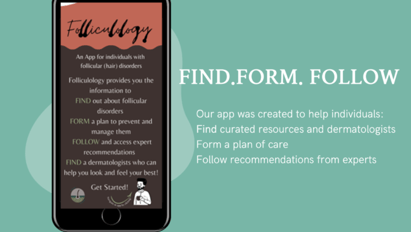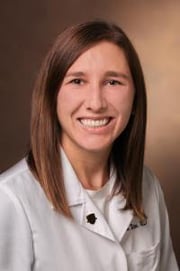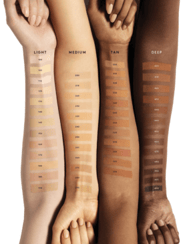Advancing Innovation in Dermatology is pleased to make available our collection of scholar articles, industry news, and interviews with the professionals accelerating innovation in skin health and patient care. This content is yet another way beyond our in-person and virtual events to strengthen the community of innovators we aim to build and maintain.
In 2018, Advancing Innovation partnered with Hacking Medicine Institute and LEO Science & Tech Hub to launch Hacking Dermatology with the mission to “radically improve the dermatological patient journey and dream big about cures for chronic skin conditions by cultivating a community of scientists, engineers, clinicians, patients and advocates.” Over the last 3 years, Hacking Derm has convened over 230 clinicians, engineers, data scientists, and patients. 70 pitches have been made, over 30 teams formed and a total of $205,000 in seed grants awarded to build solutions.
Each year, Hacking Dermatology is centered on a particular challenge area facing the field. Participants pitch problems and formulate solutions in response to the challenge area. In October of 2021, Hacking Dermatology conducted its first virtual hackathon with the focus of “Hacking Challenges Faced By Patients With Skin Of Color”.
At the 3-day event in October, over 75 participants and mentors met virtually to generate and accelerate innovative technologies in dermatology. 22 ideas were pitched, 9 teams were formed, and under the mentorship of experts, the team iterated and refined their solutions. At the end of the weekend, teams presented their projects to a panel of judges, the top 5 were awarded seed funding and extended mentorship to refine their ideas.
The top 5 teams from October were then given the opportunity to engage with Hacking Dermatology’s network of experts and mentors to “incubate” and mature their ideas ahead of a second round of competition where the 5 returning teams and 2 new teams presented their projects to the panel of judges.
At this year’s final pitch event on April 20, three out of the seven teams walked away winners, receiving further funding and access to extended mentorship.
 1st Place – Folliculology
1st Place – FolliculologyFirst place went to Linda Oyesiku’s team’s project – Folliculology. Linda Oyesiku, MD MPH is a recent graduate from the University of Miami Miller School of Medicine with a Master’s in Public Health from Boston University and BA in Anthropology from Emory University. Looking to the challenge presented, she relied on her passion of culture, health, and healing to develop a solution for reaching populations of color specifically within the dermatology space.
Linda’s team focused on prior studies showing that up to 86% of black men have suffered from Pseudofolliculitis Barbae (PFB) and learned from their own original research that 25% of barbers and 20% of individuals don’t know that a dermatologist can actually treat PFB. The question Linda’s team asked was “how can we reduce the barrier for black men seeking dermatological help with PFB and equip barbers with additional resources to further help their clients?”
 The solution:
The solution:Linda’s team looked to the cultural opportunity of relationships with local barbers to address access, educate, and build networks, to improve the quality of life of those with follicular disorders through expert advice, recommendations and direct care. This would be done through an application that helps barbers and individuals:
This first place winning project was awarded a $17,000 investment to support the continuation of their research and development, with the anticipated launch in Q3 of 2021.
 2nd place Broad Spectrum
2nd place Broad SpectrumEntering the Hacking Dermatology competition as a private practice dermatologist from Colorado, Annie Wester led her team to tackle a common problem in sunscreen products’ efficacy in protecting skin of color from dyspigmentation.
Research shows that 23% of the population with skin of color has dyspigmentation (malasma, post inflammatory hyperpigmentation, and photosensitive disorders) and that dyspigmentation issues make up 20% of dermatology visits among black patients. Knowing that sunscreen is the first line of treatment, Annie’s team explored the traditional challenges people of color face with use of traditional sunscreen products.
Current products on the market leave a white, grey, or purple sheen which tends to prevent populations of color from even using these products at all. Additional, Newer data showed that visible light plays an important role in propagating pigmentary disorders. Most sunscreens lack iron oxide, the agent identified in blocking visible.
 The Solution:
The Solution:Annie and her team have plans to develop a daily sunscreen that provides both broad ultraviolet AND visible light protection by including both iron oxide and potent antioxidants. In order to address the challenge of combating white, grey, purple sheen, this sunscreen product will be developed in a variety of tinted options that customers will more likely include in their daily skincare regimen.
With a $5,000 investment, Annie and her team are able to include a more diverse team, including a formulation chemist, and continue their R&D to bring this product to market.
 3rd place – Gene Skin
3rd place – Gene SkinA hailing team of three from Harvard, led by Department of Genetics student, Li Li, focused on the need for personalized cosmetics among populations of color.
Research shows that 85% of young adults (12-25 years old) are affected by acne vulgaris, and that acne is the most common dermatological diagnosis in non-caucasion patients. Products and prescriptions in the market have yet to master both biofidelity and personalization precision in a single skincare product.
Li Li’s team has developed a novel human cell-based experimental model to evaluate skin-related therapeutic and cosmetic products. Through GeneSkin, customers would be able to receive suggested products by simply analyzing their genome sequence and applying their cell model.

This project received $3,000 to help GeneSkin continue their work in deep learning algorithm validation and optimization validating differentiated cells at the molecular and functional level.
We’re extremely proud of the hard work of all our participants. A special thank you to our panel of judges, mentors, and partners, Hacking Medicine Institute and LEO Science & Tech Hub, who all worked hard to produce the first virtual Hacking Dermatology.

Advancing Innovation in Dermatology Inc. is a nonprofit, tax-exempt charitable organization under Section 501(c)(3) of the Internal Revenue Code.
Donations are tax-deductible as allowed by law. | Privacy Policy | Cookie Policy
© 2025 Advancing Innovation in Dermatology Inc.. All Rights Reserved. | Web Design & Development time4design - Bucks County Web Design.